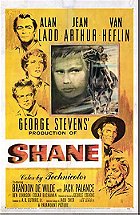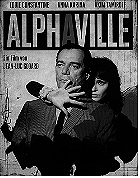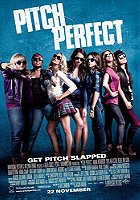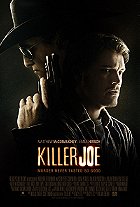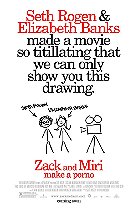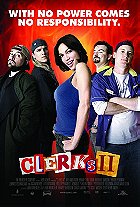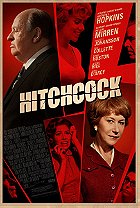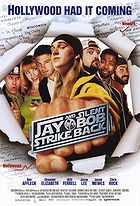The marketing campaign for Wreck-It Ralph painted this Disney animated flick as one big party for aging video game nerds, a story brimming with references and inside jokes that outsiders won't understand. Luckily, the resultant picture will appeal to wide audiences, as it strikes a great balance between fan service and highly satisfying moviemaking. The reason why Wreck-It Ralph works is because it's a lively movie which tells a wonderful story with well-realised characters, not because Q*Bert cameos here. What's notable about Wreck-It Ralph is that it may be perceived as just another video game flick, but it's more about the world of video game characters as a whole. And the movie is imbued with so much creativity and visual wit that one could be fooled into believing this to be a Pixar production.

In an old-fashioned video game arcade, behemoth Wreck-It Ralph (John C. Reilly) is a character in the Fix-It Felix, Jr. game, spending his days wrecking an apartment building that's subsequently repaired by handyman Felix (Jack McBrayer) with his magical hammer. Once the arcade shuts for the day, the community of characters congregate for conversation and relaxation. After thirty years of the same daily routine, Ralph has grown weary, fed up with his position as the bad guy and tired of being treated like a second-class citizen. Yearning for respect, Ralph sets off to win himself a medal and become the good guy, eventually entering a kart racing game called Sugar Rush that's overseen by the ruthless King Candy (Alan Tudyk). He meets the spunky young Vanellope (Sarah Silverman), an outcast who aspires to be a racer but is forbidden from doing so by Candy. Added to this, Ralph's actions lead to the threat of an outbreak of sinister bugs, and the Fix-It Felix, Jr. game may soon have its plug pulled.
Wreck-It Ralph is often described as the Toy Story of the video game world, and it is reminiscent of Pixar's first feature-length endeavour in the way it introduces the world of arcade game characters who are living, sentient entities who go through the motions for the entertainment of the players. This conceptual framework aside, though, Wreck-It Ralph's closest cinematic cousin is in fact Tim Burton's The Nightmare Before Christmas, since they both concern misunderstood loners who suffer an existential crisis and set off on an ill-advised vision-quest that takes them to other worlds where they don't belong and threatens the fabric of the universe. What's interesting about Wreck-It Ralph is that there's actually some depth to the picture: The arcade characters being pre-programmed but completely self-aware is a sly metaphor for everyday workers who are stuck in jobs they don't always like. Nevertheless, Wreck-It Ralph lacks the emotional depth and thematic relevance of something like Toy Story. It's an enjoyable ride with a few sly touches, but it doesn't deliver any thoughtful messages, and the movie probably won't wring any tears from you.

Disney managed to secure the rights for so many recognisable faces here, including Pac-Man and his orange nemesis, Bowser from Super Mario Bros., and even the inimitable Sonic the Hedgehog. Gamers will, of course, get the most out of Wreck-It Ralph, as they will pick up on all the cameos and references, but there's enough humour and energy to ensure the uninitiated also have a good time. The opening act is an absolute home run, with director Rich Moore briskly establishing the world inhabited by the arcade characters and taking us through their monotonous daily routines. Once the film settles into Sugar Rush and the plot crises are introduced, however, the pacing unfortunately begins to slow. It's never exactly boring, but Wreck-It Ralph could have used a more judicious editor to give it an added zip. Luckily, the picture is a complete visual knock-out from start to finish, which helps to maintain interest throughout the draggier narrative patches. While not photo-realistic, the animation is succulent and richly detailed, and the character designs are absolutely spot-on.
Reilly has a talent for portraying lonely sad-sacks, making him ideal for the voice of Ralph. His performance is heartfelt and charming, and he's a big reason why the movie works as well as it does. But it's the supporting cast who make the biggest impression. Playing the little Vanellope, Silverman delivers a funny, feisty performance that's also imbued with a sense of humanity. Also excellent is Jane Lynch voicing a tough-as-nails military boilerplate from the arcade game Hero's Duty. Her role is brilliantly written, and Lynch chews the scenery and emanates authority with terrific gusto.

If it's not the greatest animated movie of 2012, Wreck-It Ralph is very near the top of the list. It's a strikingly original piece of work which wonderfully taps into video game culture while also telling an amusing tale supported by a playful sense of humour and beautifully rendered animation. Video game fans will probably have the most fun with the picture as they'll recognise the references and in-jokes, but the unenlightened should still be enraptured by the comedy, the characters and the superlative set-pieces.
8.0/10
 Login
Login
 Home
Home 183 Lists
183 Lists 1662 Reviews
1662 Reviews Collections
Collections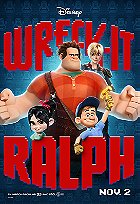
 0 comments,
0 comments, 